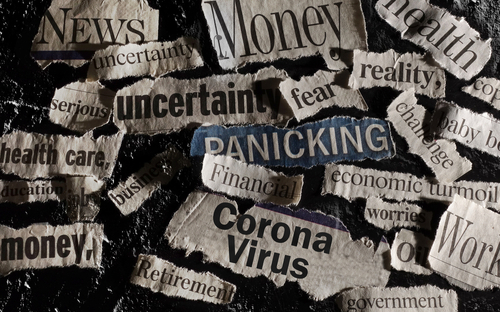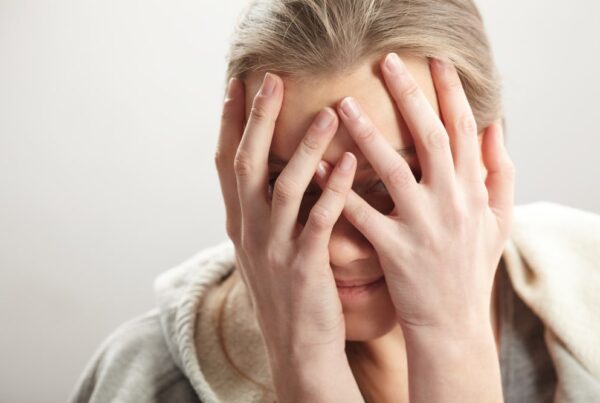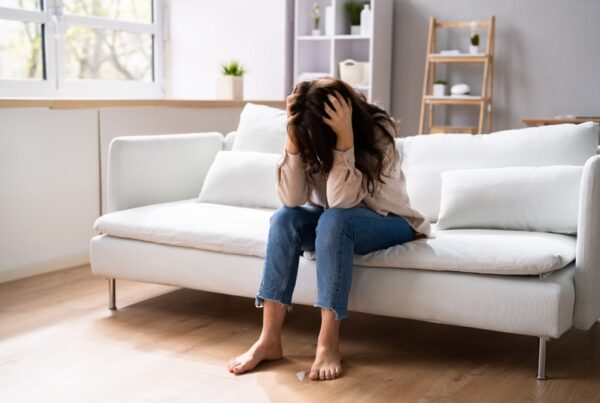Anxiety is the body’s natural response to stress. Anxiety will manifest differently in different people. The feelings of anxiety can range from mild (e.g. fluttering in one’s stomach) to severe (e.g. racing heart). Some individuals, however, will experience severe, debilitating anxiety and this could be indicative of the presence of an anxiety disorder. Anxiety disorders involve excessive feelings of nervousness, anxiousness, fear and anxiety. According to the American Psychiatric Association there are several different types of anxiety disorders, some of which include: generalized anxiety disorder (GAD), separation anxiety disorder, panic disorder, agoraphobia, and social anxiety disorder (also known as social phobia). It is important to note that while all people will experience stints of anxiety every now and then, not every person that experiences anxiety will go on to develop an anxiety disorder.
Signs and Symptoms
In order to effectively deal with anxiety it is helpful to be aware of how it can manifest. When an individual experiences a sudden and intense episode of fear and anxiety it is known as an anxiety attack. Medical News Today provides the following examples of signs and symptoms that can be the result of anxiety, many of which are commonly associated with anxiety attacks:
- Loss of concentration
- A rapid heart rate
- Restlessness
- Dizziness
- Shortness of breath
- Dry mouth
- Chest pain
- Being easily startled
- Sleep disturbances
- Fear
- Muscle aches and pains
- Irritability
- Numbness or tingling in the extremities
- Feeling of choking
- Worry and/ or distress
Anxiety attacks can range in severity and duration. Each person is unique and as such different triggers can initiate the onset of anxiety and/ or anxiety attacks in different people. Typically, the symptoms of anxiety attacks come on suddenly, and the intense symptoms can leave a person with residual effects of anxiety long after (e.g. hours, weeks, or even months) an anxiety attack has subsided.
Helpful Tips
It is helpful to arm oneself with a variety of coping strategies to navigate anxiety when it arises. In order to better deal with anxiety consider the following tips:
- Explore relaxation methods: try out different relaxation tactics (e.g. meditation, journaling, listening to music, etc.)
- Exercise: regular exercise can not only help you remain physically fit, but also provides a natural release of endorphins, elevating your mood
- Get creative: engaging in creativity can be an excellent emotional outlet; consider taking a painting class, try out ceramics, take a cooking class
- Breathe: focus on slowing down your breath to help pull your focus away from your symptoms and onto your breath.
- Acknowledge your feelings: although it may seem that your anxiety will last forever, it won’t; by acknowledging and naming your feelings you can help diffuse your angst.
- Focus on external stimuli: look around you and notice tangible items in your surroundings; this can be both grounding and helpful in gaining perspective over your anxiety
If you are experiencing frequent and/ or severe bouts of anxiety it is best to err on the side of caution and obtain an evaluation from a qualified mental health professional. At the vary least, they will be able to provide you with more pointed guidance regarding how to most effectively deal with your anxiety.
Disclaimer:
The information above is provided for the use of informational purposes only. The above content is not to be substituted for professional advice, diagnosis, or treatment, as in no way is it intended as an attempt to practice medicine, give specific medical advice, including, without limitation, advice concerning the topic of mental health. As such, please do not use any material provided above as a means to disregard professional advice or delay seeking treatment.




